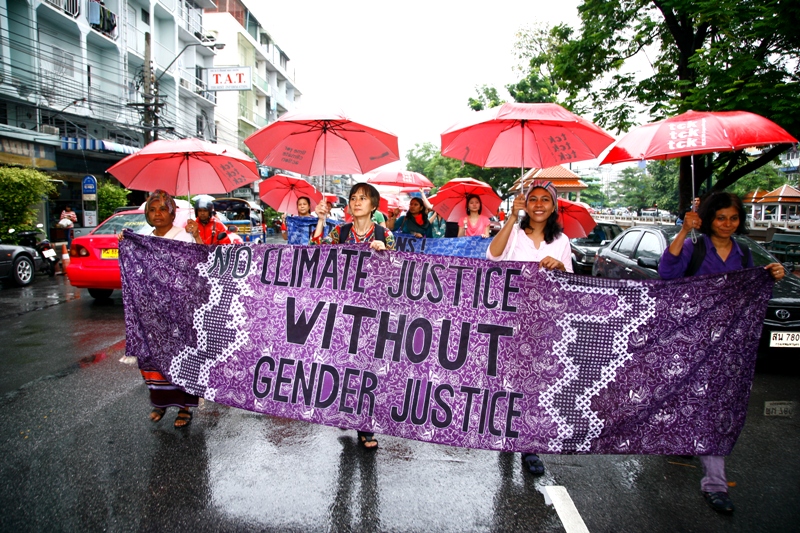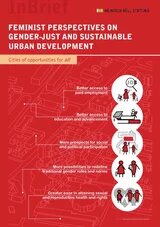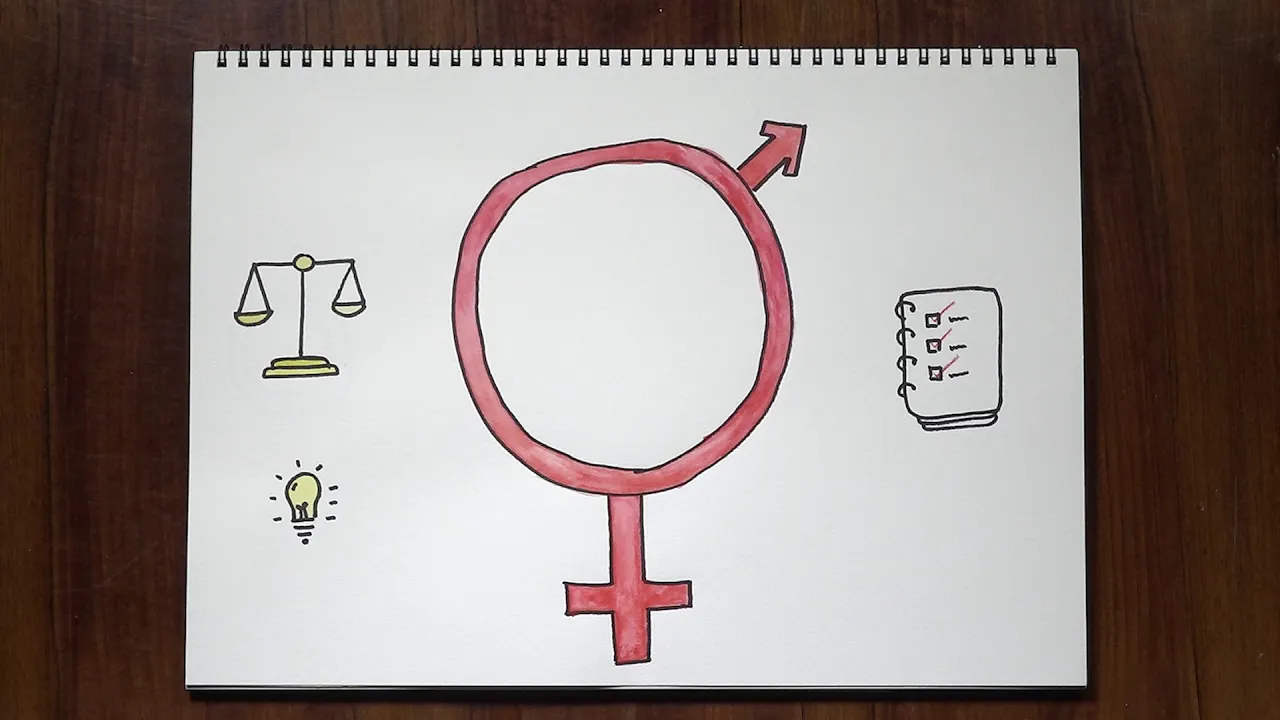Dossier
Feminist perspectives on global environmental justice
Environmental and climate crises are not gender neutral. They disproportionately affect people already facing multiple forms of discrimination. If feminist environmental policy is to extend beyond the effects on women, it needs to combine gender and ecological expertise. This dossier features a selection of the Heinrich Böll Foundation's contributions over recent decades to international debates on environmental and gender justice. To combat both discriminatory power relations and resource destruction, the foundation's international offices have launched environmental projects that pursue these cross-cutting policies.

No field of policy is gender neutral. That's why it's so important not just to have climate policy run through all the ministerial portfolios but also to really integrate gender democracy in all of them.Barbara Unmüßig, President of the Heinrich Böll Foundation
Introduction
As pressure grows to combat the drastic effects of global environmental and climate crises, greater attention is also being paid to civil society organisations throughout the world and their ever stronger feminist demands. Women's and feminist movements are playing an increasingly important role in environmental and climate action. The UN's Commission on the Status of Women is also devoting its 2022 session to "achieving gender equality and the empowerment of all women and girls in the context of climate change, environmental and disaster risk reduction policies and programmes".
Feminist perspectives on global urbanisation
Some 90% of future urban residents are expected to live in Asia and Africa; regions that are already home to highest proportion of socially disadvantaged people. Worldwide, 800 million people currently live in slums. In Europe too, almost a quarter of the urban population are impoverished and socially excluded. And yet for women, who on average own less than 2% of the world’s titled land, the city is an opportunity and a chance for survival.
Two sides of the same coin: gender justice and climate justice
The effects of global warming and climate change affect all people worldwide, but not to the same extent. The climate crisis affects countries in the Global South more than those in the North, and it does not have a gender-neutral impact. Women* and girls* are demonstrably more exposed to greater risks from natural disasters and stresses from weather extremes than men and boys.
Video
In this four minute video, we show why climate finance must be gender-responsive and what gender responsive climate finance should look like.
Podcast
In this episode, we talk to environmental activists from Colombia, Pakistan and Zimbabwe about why the climate crisis is a feminist issue and why the climate justice movement must embrace intersectionality in order to affect more equitable change.
What gender justice and plastic have to do with one another
The UN Environment Assembly endorsed a resolution to create a legally binding agreement by 2024 to lower the huge levels of plastic pollution. Plastic products weighing one hundred times the Eiffel Tower are thrown into seas and dumps every day. As is well known, their production and disposal processes also cause enormous environmental and health problems. But what does destructive plastic waste have to do with gender inequality?







